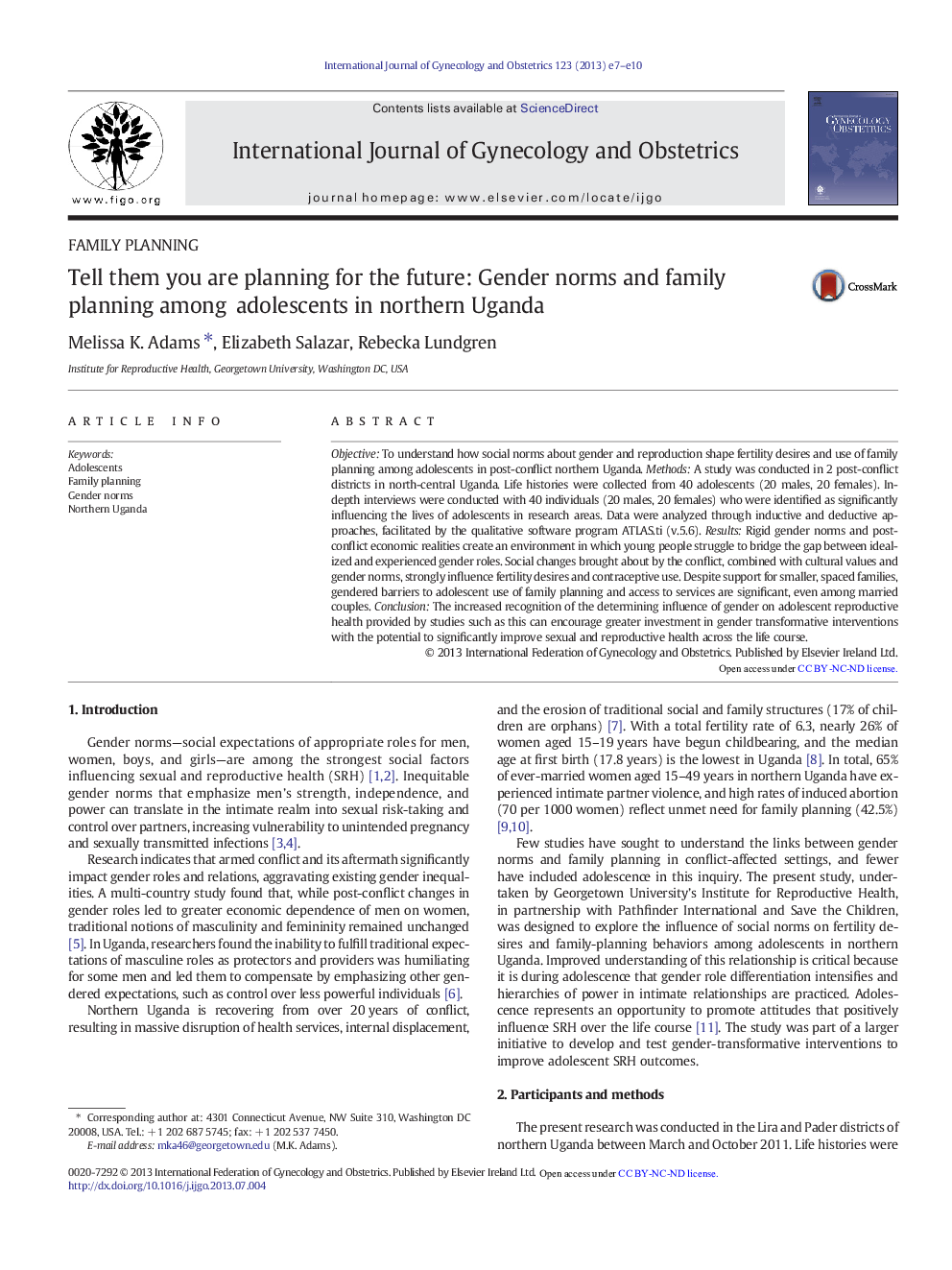| Article ID | Journal | Published Year | Pages | File Type |
|---|---|---|---|---|
| 3948772 | International Journal of Gynecology & Obstetrics | 2013 | 4 Pages |
ObjectiveTo understand how social norms about gender and reproduction shape fertility desires and use of family planning among adolescents in post-conflict northern Uganda.MethodsA study was conducted in 2 post-conflict districts in north-central Uganda. Life histories were collected from 40 adolescents (20 males, 20 females). In-depth interviews were conducted with 40 individuals (20 males, 20 females) who were identified as significantly influencing the lives of adolescents in research areas. Data were analyzed through inductive and deductive approaches, facilitated by the qualitative software program ATLAS.ti (v.5.6).ResultsRigid gender norms and post-conflict economic realities create an environment in which young people struggle to bridge the gap between idealized and experienced gender roles. Social changes brought about by the conflict, combined with cultural values and gender norms, strongly influence fertility desires and contraceptive use. Despite support for smaller, spaced families, gendered barriers to adolescent use of family planning and access to services are significant, even among married couples.ConclusionThe increased recognition of the determining influence of gender on adolescent reproductive health provided by studies such as this can encourage greater investment in gender transformative interventions with the potential to significantly improve sexual and reproductive health across the life course.
